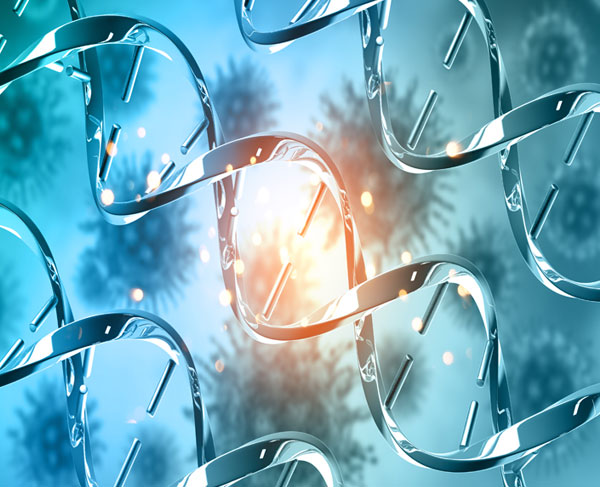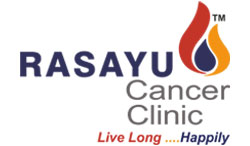Cancer Types
- Bladder Cancer
- Bone Cancer
- Breast Cancer
- Cervical Cancer
- Colorectal Cancer
- Endometrial Cancer
- Head & Neck Cancer
- Kidney Cancer
- Laryngeal Cancer
- Leukaemia
- Liver Cancer
- Lung Cancer
- Multiple Myeloma
- Nasopharyngeal Cancer
- Non-Hodgkin's Lymphoma
- Oesophagus Cancer
- Oral Cancer
- Ovarian Cancer
- Pancreatic Cancer
- Prostate Cancer
- Skin Cancer
- Stomach Cancer
- Testicular Cancer
- Thyroid Cancer
Opening Hours
- Monday - Saturday 10:00 am - 7.00 pm

Laryngeal Cancer
- Laryngeal cancer is one of the 10 leading causes of cancer in Indian men.
- Laryngeal cancer is the ninth and seventh most common cause of cancer in males in Asia and India respectively.
- As per Globocan report 2018, laryngeal cancer patients are 0.98% of the total cases and 0.99% of the total deaths due to cancer.
- The 5-year survival rate for laryngeal cancer is 60%. while 54% are diagnosed and treated at the very onset and in such cases, the 5-year survival rate is 77% as stated by ASCO.
- If the cancer has spread to neighboring tissues or organs and/or the regional lymph nodes, the 5-year rate slides down to 45%. If the cancer has spread to a distant part of the body rate drops to 33%.
Causes
- Drinking alcohol.
- Poor nutrition.
- HPV.
- Workplace exposure- Long and intense exposure to wood dust, paint, fumes, petroleum, plastics and textile industries are risk for Laryngeal and Hypopharyngeal cancers.
- Gastroesophageal reflux disease.
Carcinogenic factors with sufficient evidence (Ref – IARC)
- Acid mist.
- Strong inorganic gases.
- Alcoholic beverages.
- Asbestos (all types).
- Tobacco smoking.
Carcinogenic factors with limited evidence (Ref – IARC)
- Rubber production industry.
- Sulphur mustard.
- Passive tobacco smoking.
- Oesophageal reflux.
Signs and Symptoms
- Hoarseness or voice change for a long time.
- A sore throat that does not go away for a long time.
- Constant cough
- Pain during swallowing
- Earache.
- Trouble breathing
- A mass in neck
- Weight loss etc.
Investigations
- A physical exam allows the doctor to look for any signs of laryngeal cancer.
- During a physical exam, your doctor may find;
– Lumps– Swelling
– Enlarged lymph nodes in the neck
– Lumps or swelling on the inside of the mouth, including the cheeks and lips. - Biopsy
- Fine needle aspiration (FNAC)/core biopsy : Diagnosis of this cancer is done by fibre optic endoscopy, fine needle aspiration (FNAC)/core biopsy of any neck mass.
- PET Scan
- Computerized tomography (CT)/PET scan / Magnetic resonance imaging (MRI) scan – Patients with confirmed malignancy will also undergo for scan to determine stage of cancer.
- Biomarker investigations
Treatment
- To plan personalised treatment for each individual patient as every individual is different even if they have the same type of cancer.
- To improve health related quality of life (QOL) in all types and stages of cancer patients.
- To plan for partial or total regression of tumour depending on the nature of tumors.
- To increase overall survival (OS) of patients.
- To increase disease free survival (DFS) where complete resection of tumour is achieved.
- To provide a treatment option to patients who are refractory to conventional treatments like chemotherapy / radiotherapy / immunotherapy etc.
- To reduce the rate of growth of the tumor in recurrent and advanced staged cases.
- To increase progression free survival in advance cases.
- To reduce impact of symptoms related to progression of disease.
- To improve confidence of patients.
- To provide palliative support in end-of- life cancer cases.
- To add happiness and extension of life to cancer patients.
- To compliment other therapies like chemotherapy, radiotherapy in a synergistic way.
- To reduce severity or adverse effects of other conventional treatment. This reduces incidence and frequency of hospitalization.
- It is pertinent to note that Rasayu Cancer Clinic does not claim or blame anything while communicating any aspect to cancer patients.
- Rasayu Cancer Clinic focuses on Ayurveda fundamental based therapies.
- Rasayu Cancer Clinic believes in continuous improvement in service and science.
- Rasayu Cancer Clinic always advocates patient centric approach which leads to long and happy life of cancer patients.
- Every patient has a right to choose the therapy.
- Rasayu Cancer Clinic never imposes Rasayana therapy on patients but helps them to take the right decision, hence making patients/ relatives well aware about the disease and possible outcomes along with its risk benefit and cost benefit ratios.
- Rasayu Cancer Clinic is well connected with global updates in cancer care and therapies, through advisors and collaborations with national and international institutes.
Surgery
- Current surgical techniques employ primary closure where possible, but can allow for extensive resections by performing immediate reconstructions using free flaps from skin, fascia, muscle or bone.
- This is often the treatment of choise in more more advanced lesions, i.e. T3/T4 Tumorurs.
Chemotherapy
- Agents such as 5-flurouracil, cisplatin and methotreaxate can produce high response rates, however, responses tend to be short lived, regrowth is often rapid, and there is no evidence to show any survival benefit.
- While destroying cancer cells, it destroys fast dividing normal cells, which further creates multiple side effects.
- Chemotherapy in the neoadjuvant setting and concurrent with radiotherapy along with newer agents are the subjects of current clinical trials.
- Myelosuppression and mucositis are the most common side effects of this therapy.
- Side effects of Chemotherapy – Click Here
- Adverse drug reactions (ADRs) of Chemotherapy – Click Here
Radiation Therapy
- It can be used as the primary treatment or in the adjuvant postoperative setting. Indications and technique will depend on anatomical location of the tumor.
- The major potential advantage of this therapy is functional preservation, particularly of speech and swallowing.
- Acute skin reactions, mucositis are more common side effects of radiotherapy.
- What are the side effects of radiation therapy? – Click Here
Immunotherapy
- Efficacy of the treatment is still not clear as per the National Library of Medicine, since there is a need for improved biomarkers.
- Cost of this treatment is high and many times does not fit into cost benefit ratio.
- Side Effects – Click Here
- Risk and benefits of Immunotherapy – Click Here
- Side Effects of Immunotherapy – Click Here
Targeted Therapy
- Targeted therapy is a treatment that targets the cancer’s specific genes, proteins, or the tissue environment that contributes to cancer growth and survival.
- This type of treatment blocks the growth and spread of cancer cells while limiting damage to healthy cells.
- Side Effects From Targeted Agents in Renal Cell Cancer – Click Here
Rasayu Cancer Clinic Rasayan Treatment Protocol – To know more please click here
Rasayu Therapy is recommended for those :
- Who voluntarily opted for this treatment as their first choice.
- Who are disenchanted with the past treatments.
- Who do not see any other options of treatments.
- Who are looking for personalized treatment plan.
- Who desire a convenient home-based oral therapy which is easy for consumption.
- Who are susceptible to acquire hospital borne infections/ complications, hence not willing to be hospitalised.
- Who are looking for favourable risk benefit ratio.
- Who desire to improve Quality of Life benchmarks based on global standards and monitored regularly.
- Who wants to be involved in decision making for choice of treatment.
- Who are willing to be involved in monitoring the efficacy of Rasayana Therapy.
- Who believe in the transparency of the process by conducting regular investigations by biochemical parameters/ hi tech imaging techniques like PET scan etc.
- Who are looking for professionals being sensitive to the patient, the care givers and the family.
- Who desire to take even with other treatments including Chemotherapy / Radiotherapy.
Disclaimer : This Website contains certain links such as You Tube links, research paper links / website links / audio visuals / internet information already available in public domain. The information contained in the audio visuals is meant for use by qualified Medical Professionals. The content of the links etc has been made available for informational and educational purposes only. Rasayu Cancer Clinic and its associates do not make any warranties with respect to the accuracy, applicability, fitness, or the completeness of the content of such links etc. The information contained in such links represents the views and opinions of the original creator of such links and are not views endorsed by the Rasayu fraternity.


